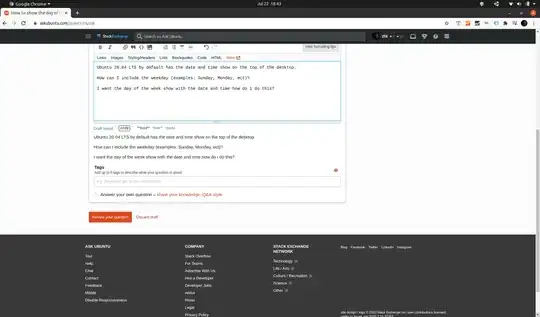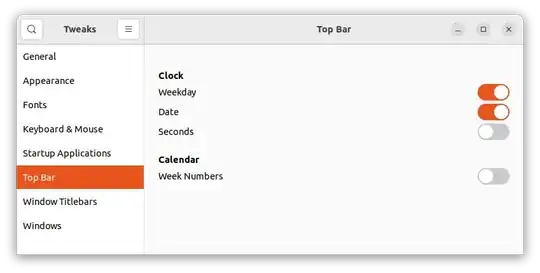To show the weekday in addition to the date and time in Ubuntu 20.04, use the command line tool called "gsettings".
It's a good idea to view your current settings first. So open the terminal and run this command:
gsettings list-recursively org.gnome.desktop.interface
It will return various Gnome interface settings, and the one you are interested in is "clock-show-weekday" (with the value "false").
Set the "clock-show-weekday" to "true" by running this command:
gsettings set org.gnome.desktop.interface clock-show-weekday true
Once you hit Enter, you will will see the weekday displayed with the weekdays shown.

